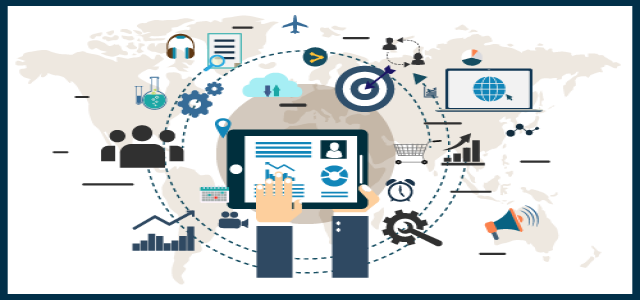
The smart water metering market will gain considerable traction, subject to the rising demand for efficient water consumption. Smart meters help record real-time data and reduce water bills, thereby enabling water conservation. Indeed, water conservation has emerged as a pivotal need of the hour, as is evident from the efforts taken for the same across myriad geographies. Recently for instance, The Nature Conservancy and PepsiCo declared new water conservation projects in the Southwestern United States. PepsiCo in 2016, had also announced that it plans to return all the water used by the company in the manufacturing operations, back to the same watershed from where it was taken, by 2025. The deployment of smart water meters will augment the rising efforts to save water and prevent its unnecessary wastage, thereby stimulating smart water metering market.
AMR-based smart water metering market is slated to accomplish quite some valuation by 2024, driven by the easy availability, affordable maintenance, and low installation costs that this technology is endowed with. Indeed, AMR has been massively deployed in smart electric meters as well, gradually stimulating global smart electric meter industry share.
Request for a sample copy of this research report @ https://www.decresearch.com/request-sample/detail/697
The smart water metering market, worth more than USD 900 million in 2016, will register a revenue of more than USD 3 billion by 2024.
Smart water metering industry is stringently controlled by a regulatory framework, owing to the norms enforced with regards to the conservation of water. As per the EC Directive 2000/60/EC, it is mandatory for respective nations to prioritize the prevention of water wastage and water conservation, especially in drought-ridden areas of the region. Technologically, smart water meters can be deployed based on two key technologies – automatic meter reading (AMR) and automatic meter infrastructure (AMI).
The AMI-based smart water metering market size is slated to register a stupendous CAGR of 28% over 2017-2024. While AMI technology is relatively advanced, it is prudent to mention that its excessive cost may restrain its growth over the next few years. Smart meters help curb water losses and streamline billing processes. In this regard, water utilization data gathered by AMI-based smart meters help to identify problems in water distribution and manage water allocation in an efficient manner, which eventually serves to understand consumer requirements.
Smart water meters, in general, find massive applications across the commercial, residential, and utility sectors. Smart water metering industry size from residential applications has been projected to cross the billion-dollar frontier by 2024. This commendable accomplishment can be credited to the increasing demand for precise water bills and the accurate formulation of unregulated spending on water resources. Indeed, smart meters also possess the ability to reduce non-revenue water & secure remote monitoring, further expanding the scope of smart water metering market from the residential arena.
Request for customization @ https://www.decresearch.com/roc/697
The smart water metering industry is likely to chart out a profitable growth path over the forthcoming years, aided by a strong legislative framework and the efforts undertaken by myriad companies and provincial governments. Water conservation has emerged to be an issue of global concern, given the depleting sources of water across numerous geographies. Efforts are being undertaken at a governmental as well as provincial level in order to address the problem. Say for instance, the Indian and Israeli governments have recently inked a MoU, according to which both the nations would work side by side at the national and international level for designing, implementing, and monitoring a ‘National Water Conservation Campaign’ prioritizing water conservation. Not to mention, numerous companies partaking in smart water metering market are engaged in periodic mergers and acquisitions to consolidate their position in this business space.
The United States is one of the most foremost growth grounds for smart water metering market. Incidentally, Glendale was the first city in the United States that set a benchmark for better utility management and responding to unexpected natural calamities such as droughts, by means of implementing smart meters to develop a smart grid network. The rising adoption of smart water meters will thus majorly drive U.S. smart water metering industry. Not to mention, the region has a strict regulatory frame of reference in place, which would serve to drive smart water metering industry.
Related News: -
© 2025 groundalerts.com. All Rights Reserved.